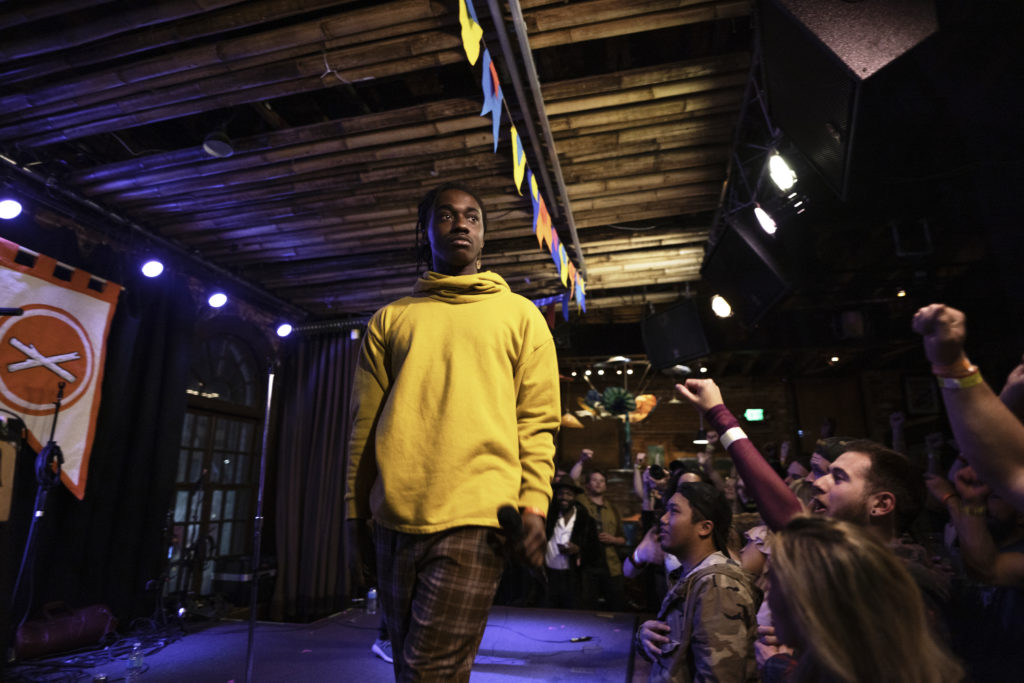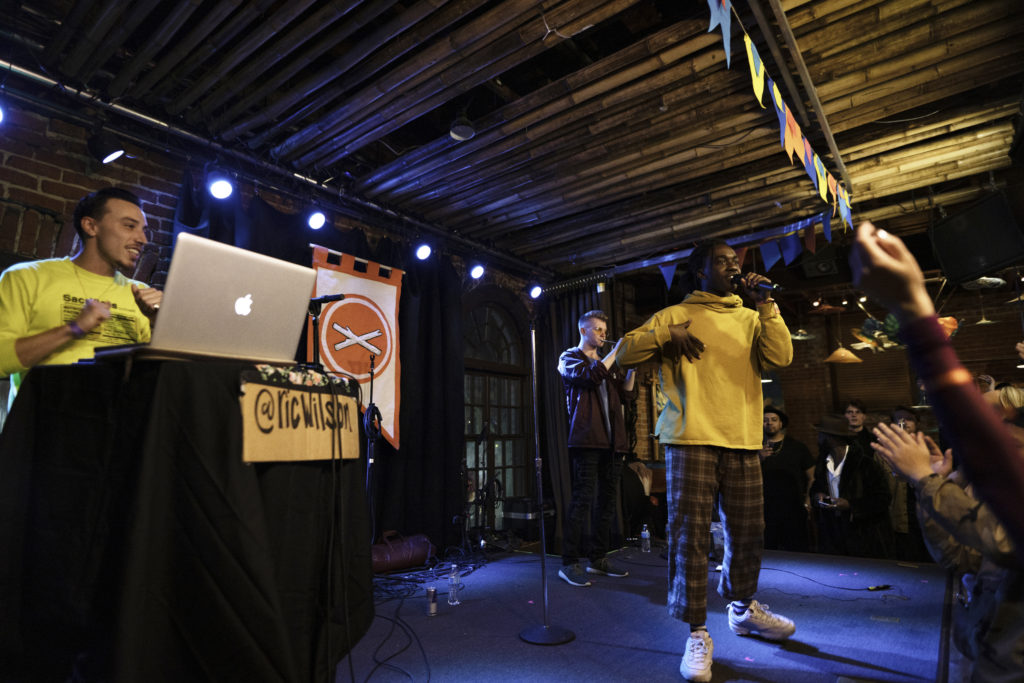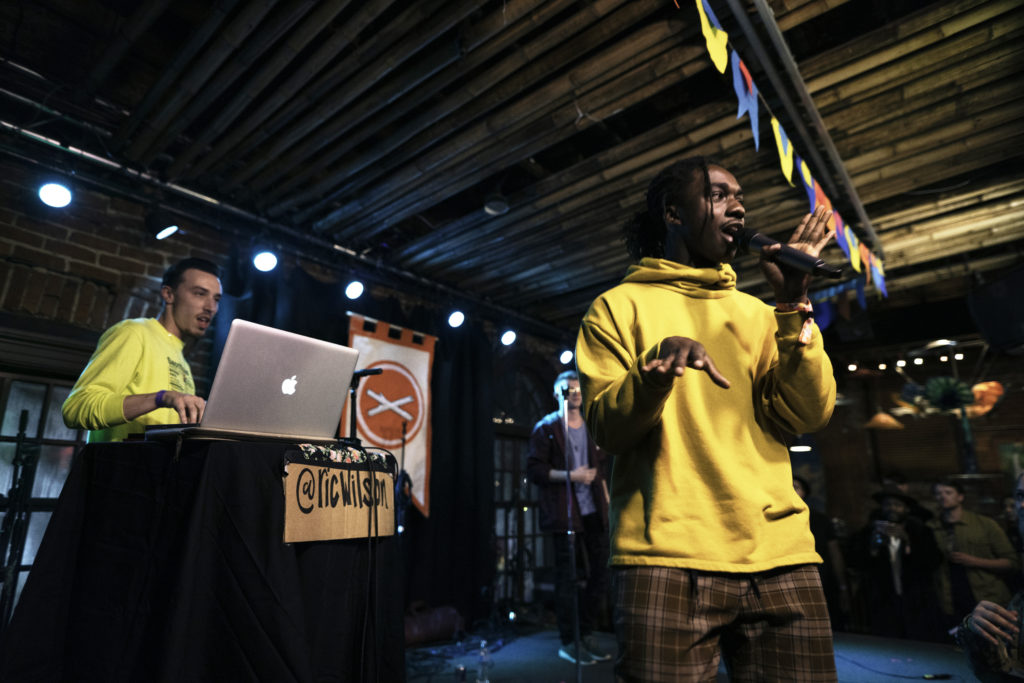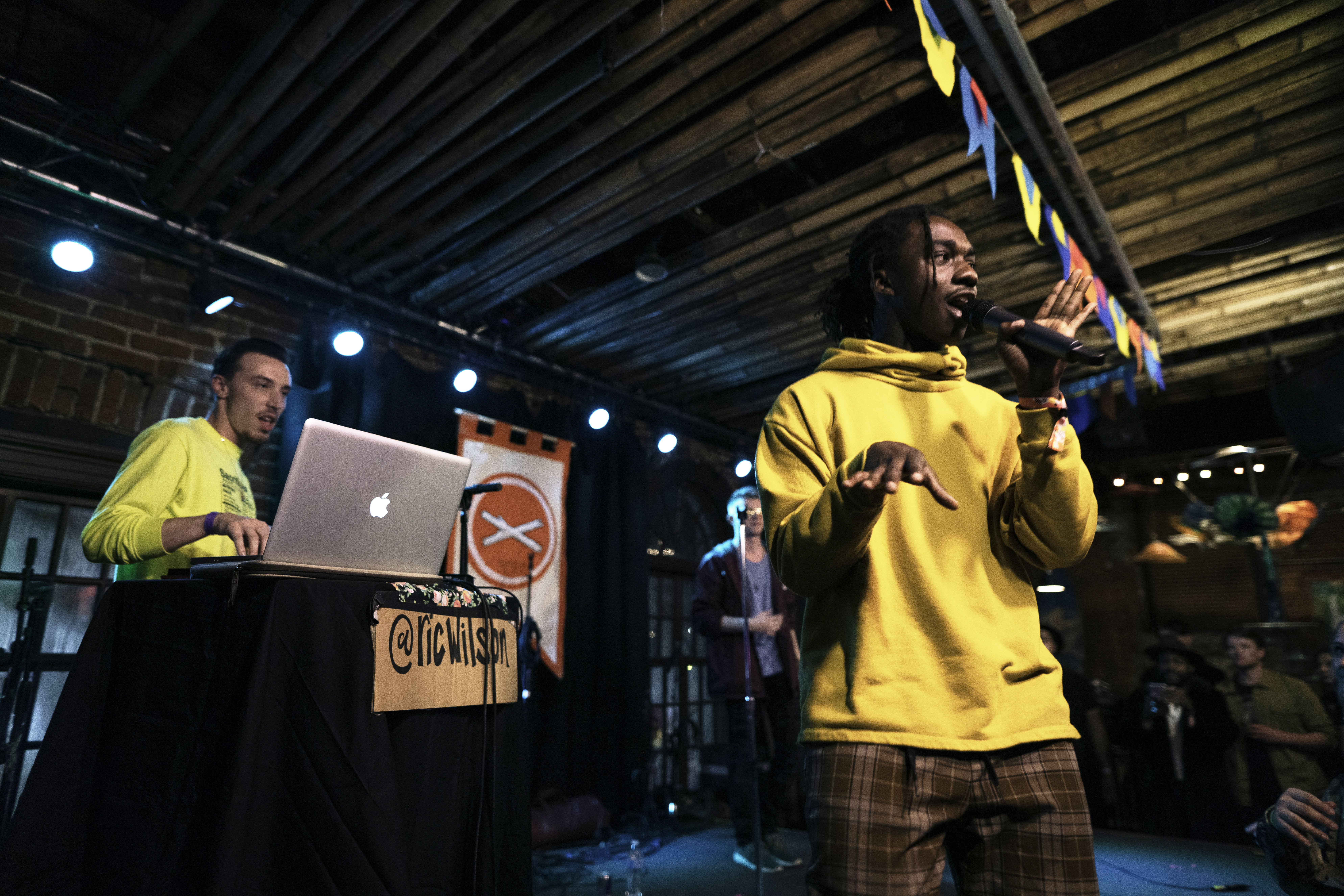I sat down and talked with Ric Wilson discussing everything from music to activism to diversity. When I asked him how he liked Boise, he responded with, “It’s okay, it’s super *whispered* white.”
Ric Wilson, a musician from the Southside of Chicago has created 3 EP’s “Soul Bounce” in 2016, “Negrow Disco” in 2017 & “BANBA” in 2018. Sinner, a single from BANBA just hit a million streams on Spotify! Ric’s “first milli” he tweeted.
BANBA, his latest EP, stands for Black Art Not Bad Art. Here he highlights the often-racist stereotype of blackness equating to mediocrity and rebuttals that empty idea with the facts. It’s everything but that — it’s remarkable, it’s Black.
Not everything is for everyone. If it doesn’t move you it wasn’t made for you. Ric’s music is made with empathy for empaths. It will not resonate with everyone and that’s the magic of it, you have to have some magic to understand magic.
Ric dropped tracks “Yellowbrick” and “Dan Ryan” just before he kicked off his US tour here in Boise, ID. We should feel oh-so-lucky to have heard it live first! “Yellowbrick” is a refreshing, respectable, love song inspired by the classically black films, The Wood & The Wiz. “Dan Ryan” represents Ric’s motivation: Humanity.
Named after an expressway in Chicago that runs through the South Side of the city. Here he raps for the,
“…Cousins that won’t ever get to make it out Chicago/ Marginalized they problems and then drink it into bottles/ Seasons steady changing but you stuck just like a pothole/ And then he lose his life by bullets from a tinted tahoe/ Kids from summer camp that never made it to the next year/ Get so numb it’s almost like that death is not complex here/ And every funeral at AR leak is getting old/ This for everyone they overpriced to every dig a hole.”
His disco rap aesthetic uplifts and inspires people to remember their resilience, embrace joy, and celebrate themselves. Check out the interview below.
RIZE Entertainment: It’s the beginning of 2019 and I hear you began rapping in 2015? That’s such a short turnaround. How did you evolve so quick?
Ric Wilson: Yeah, you did your research. Idk I just began recording myself, and I was a poet before I rapped. Things just kind of moved, especially when you surround yourself with talented people. I usually have a full band too.

RIZE: How did it feel to see your, touch your, hear your, music on vinyl for the first time?!
RW: Oh, ok wow, these are really good questions. I was like, “Damn I’m making music, music. I’m out here, out here.” I was like ok cool. That’s when I really felt like this is full-time. This is the thing now. It’s a for sure thing. This can happen.
RIZE: I saw you RT a quote that moved me, “Art isn’t made for coffee tables, it’s made to sustain a people.” And I was wondering if you could elaborate on that message?
RW: Art is the thing that gives us our basic gravity and is keeping our humanity —whatever that is. In the sense that a coffee table is just something that you take sips off of but you don’t really need and it can’t support you forever.
RIZE: You went to college on a scholarship but decided to turn to music and that is working very well for you. What helped you make that tough decision? Also, what were you studying? Were you involved in sports too?
RW: My best friend’s brother is this producer named Sonny Digital. He’s this big time producer and he lived right above Metro Boomin, who was also a big producer, both coming up at the time. I went up to his house to make music with his brother, I fell asleep high, and slept through a whole track meet. That was the point where I was like, “Oooh, either go to a different school, or try to make music.” I lost the scholarship.
I run cross country. In track I run 5k and the Steeplechase. My favorite race is the 3-mile race.

RIZE: You were something of an activist before pursuing music which shows within your lyrics. You were gifted with talent and work hard to spread your message. What would you say to young activists who also aspire to spreading their word, who have something to say, who might not be gifted in music? What outlets were you using to produce change before music?
RW: Well I was hardcore, for real organized so I would be the one that would decide where we’re going to meet up. We’re going to march from here to there. Really, just learn to collaborate and get people together. Learn how to talk to people. Talking to people isn’t a thing that everyone has. Some people might need to be the people who take notes. You have to figure out your role in the movement. Especially in the movement for liberation. Everybody can’t be an MC, and everyone can’t be a host. Everyone’s not a full-on leader in the sense that, all these people are going to follow behind me. But someone can hold the role of the APA sign between them and the cops, or my role is going to be to make these fliers, or write this press release.
There’re so many different aspects to it. People always see us or the mouthpiece for the movements but were just a mouthpiece for a bigger organization that’s behind us helping things run. When I went to Geneva, Switzerland, in the UN there was the treasurer, someone in charge of fundraising, someone in charge of the bank account, a whole process — a team.
RIZE: What’s the writing process like? A day in your life, the writer’s life. Do you write when inspired, create when it comes to you or do you discipline yourself to write regularly?
RW: It’s inspired, or someone will say something, a phrase, and I’ll be like, “Oh, shit, damn, got it.” Put on this beat, the skeleton of this record we’re working on, and just start writing, and have all these ideas that come together. It’s hard to explain, you got to be there to see it.
RIZE: Are EP’s your thing? Do you prefer that length to an LP? Or when do you foresee, we’ll get an album from you?
RW: Haha, “Like, so ni**a are you ever gon’ drop an album or what, wtf?” I don’t know. I mean I am going to drop an album that’s the plan, but I just never have the time and the budget to do an album. EP’s I do them because I’m able to mix all the records, put them out, and it’s good quality songs. Albums you have to overthink. That’s why I like Chance and all these rappers that are just like, I got this mix tape, I got that mix tape, way of life. I feel like they didn’t secede or fill up someone’s idea of what their first album should be you know what I mean? It’s a lot of work, a lot of time, and a lot of pressure. It’s like a book. It’s my first book.
RIZE: So, you’re a rapper, a singer, you mix your own music, an activist, a poet, a dancer, a model, anything else we may not know?
RW: Did you say actor? I’m an actor too. There’s a show called “Easy” on Netflix. My acting debut. I’m going to be a character in a couple episodes next season. It comes out in May.

_______
Hooray! Easy is compared to shows like, “Dear White People.” We can’t wait.
During the interview Ric revealed that he felt weird being one of the only people of color (POC) acts here, to me personally and openly on his IG stories. Considering the reality of his statements, we’re immensely grateful for his presence, showing up to Boise, though his comfortability was everything but at ease — because of the lack of diversity. This is what Boise is missing, and what we at RIZE continues to work to cultivate where our roots began, here in the City of Trees, and everywhere along the way.











